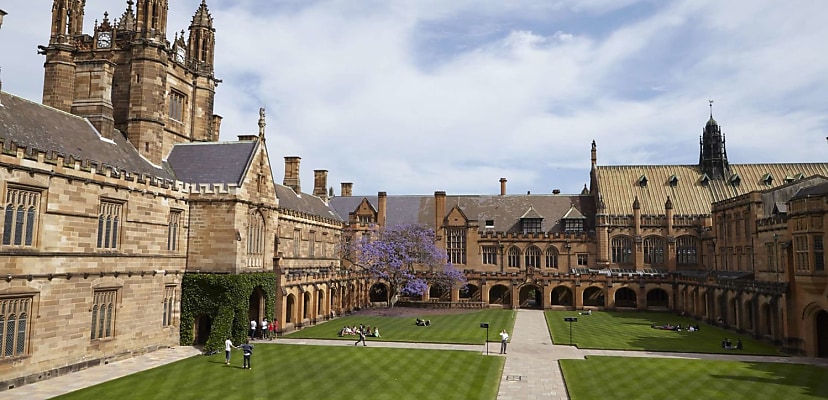Share this article on:
Powered by MOMENTUMMEDIA
Breaking news and updates daily.
The University of Sydney has announced that it will allow students to use artificial intelligence tools for some assignments.

From the beginning of 2025, students at the University of Sydney will be allowed to use AI tools in most cases as a default rule, while in semester two, it will put in place a “two-lane approach” in which take-home, “open” assignments will allow the use of AI and any other available tools, while in-person assessments will ban the use of the technology.
University of Sydney deputy vice-chancellor of education Professor Joanne Wright said the new policy on AI has been designed to prepare students for the modern world, one which will surely incorporate AI.
“This is a substantial change to our teaching, assessment and program design, and it is absolutely necessary to ensure our graduates are equipped with the tools they need for the modern workforce,” she said.
“Generative AI has already had a profound impact on workplaces, and our graduates are expected to demonstrate skilled use of the relevant tools in job interviews.”
The university said it is aware that AI can be used to easily complete take-home assessments, but it has worked to regulate its use and encourage students to develop their skills and knowledge rather than outright ban it.
“It’s no secret that any take-home assessment can be completed to a high level by AI, and it’s not practical, enforceable or desirable to implement a blanket ban on these tools, or even to restrict their use,” said the university’s pro-vice-chancellor of educational innovation, Professor Adam Bridgeman.
“We have worked closely with the regulator, educators and students to chart a way forward in a world where AI is ubiquitous and that satisfies the principles and purposes of higher education.”
Already, young kids, even prior to reaching university age, are using AI, particularly OpenAI’s ChatGPT.
Online safety firm Qustodio’s Apps through the Ages report shows that despite OpenAI’s own advice, 30 per cent of Australian children between 13 and 15 regularly use ChatGPT. The figure increases to 39 per cent in the 16 to 18 age bracket, but even children far younger are using the application.
Five per cent of children aged between seven and nine use ChatGPT, rising to 16 per cent of kids aged between 10 and 12.
The data was compiled from anonymous app usage from around 19,000 Australian families with children between the ages of seven and 18 and was conducted throughout 2023, when ChatGPT launched.
According to ChatGPT’s Educator FAQ, “ChatGPT is not meant for children under 13, and we require that children ages 13 to 18 obtain parental consent before using ChatGPT,” which is clearly unenforceable given how easy it is to access without even creating an account.

Be the first to hear the latest developments in the cyber industry.